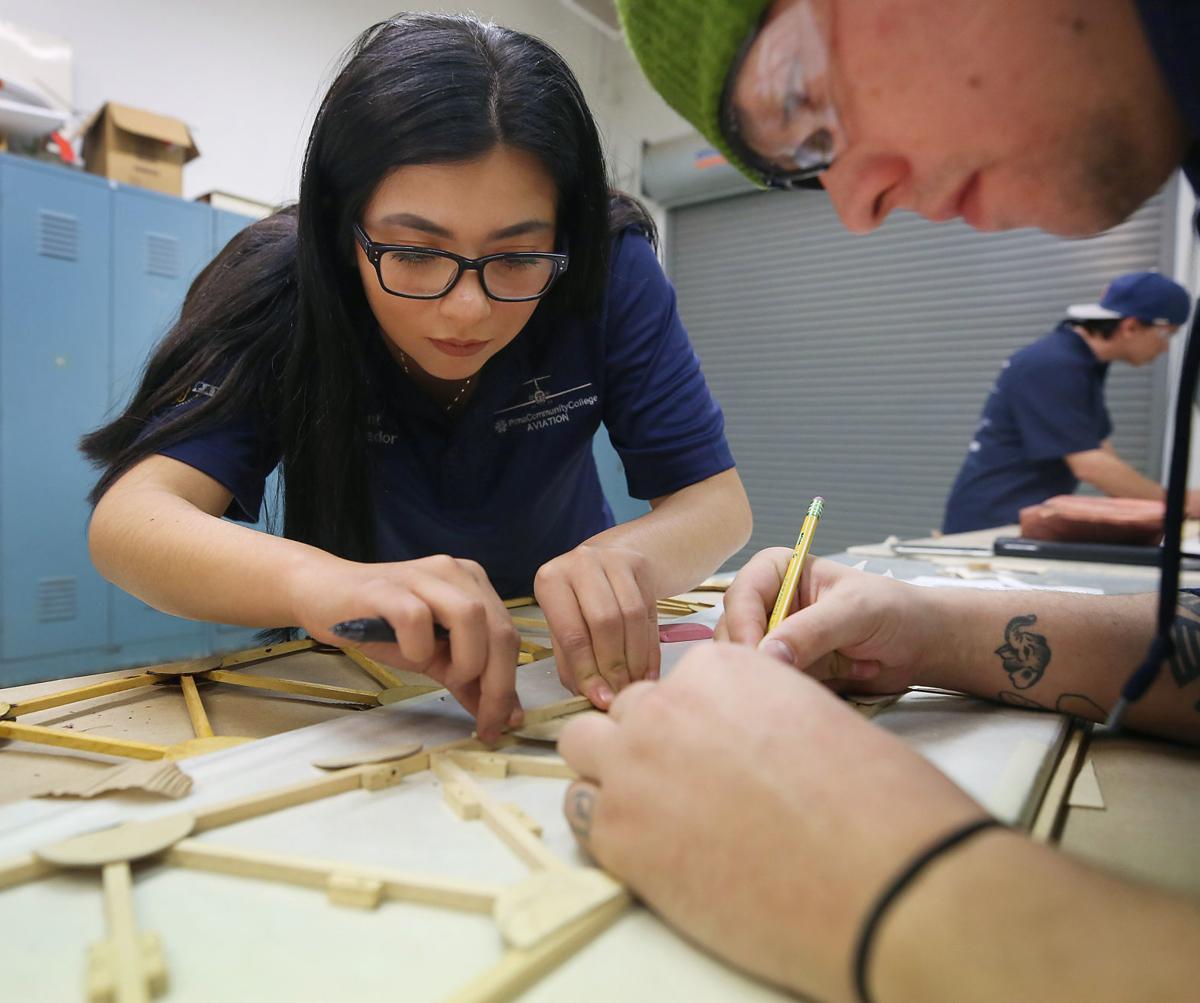PHOENIX — Arizona’s community colleges are now on the path to awarding four-year degrees if they wish to.
Gov. Doug Ducey signed legislation Tuesday to permit these local institutions to offer baccalaureate degrees — and do so without having to first enter into a joint program with one of the state’s three universities.
“Arizona’s community colleges play a critical role in supporting students of all ages and equipping our workforce with skills and resources,’’ Ducey said.
The Republican governor also noted that Arizona has gained a reputation of being a “school choice’’ state, at least at the K-12 level, with parents able to choose among traditional district schools — and not just in their own neighborhoods — as well as charter schools and religious and private schools.
“Today’s action is school choice for higher education,’’ Ducey said. “It will allow students even more opportunities as they strengthen their education and expand their employment opportunities.’’
He said 23 other states have similar systems that allow community colleges to offer four-year degrees in certain circumstances.
Regents say there’s no need
His signature came despite a last-ditch bid by Larry Penley, chairman of the Arizona Board of Regents, urging him to reject the legislation and keep the community colleges in their traditional roles including technical certificates, two-year degrees and feeding students into the three universities.
Penley also argued in a letter to Ducey that the move is unnecessary, as the regents have four-year programs they operate in collaboration with community colleges in Apache, Graham, Maricopa, Mohave, Yavapai and Yuma counties.
Enrollment in universities has doubled since 2002, he said. “What Arizona needs from community colleges, in addition to their technical certificates and degrees, are associate degrees that have a higher graduation rate,’’ he wrote, though he offered no specifics.
Pima not interested at this time
Pima Community College does not plan to begin offering four-year degrees but that could change in the future, said spokeswoman Libby Howell.
“The bill places significant restrictions on colleges in counties with populations of more than 750,000, (meaning) Pima Community College and Maricopa County Community College District,” she noted.
PCC is continuing to focus on offering associate degrees, CTE certificates and transfer credits, Howell said.
She said Chancellor Lee Lambert thinks Arizona could benefit from development of a strategic plan for the higher education system that could include such things as creating four-year state colleges that are not universities as well as providing more funding for Adult Basic Ed programs.
“PCC would welcome the opportunity to work on such a strategic plan with the universities, the state Legislature, and the Governor’s Office,” Howell said.
Maricopa praises decision
Ducey’s decision drew praise from Steven Gonzales, chancellor of the Maricopa Community Colleges, who has pushed for the new permission.
He said the aim is not to compete with the university system but to supplement it. Gonzales said there are specific needs for more teachers and nurses, as examples, than the university system is turning out.
And Gonzales said these programs can be conducted at far less cost than the universities charge in tuition, all without raising local property taxes.
Setting up the change will take time
None of this will happen immediately.
The new law requires governing boards to determine whether to offer four-year degrees based on both the need, as determined by student demand and workforce gaps, as well as the financial requirements necessary to sustain the program.
Programs also have to be accredited by the same agencies that have purview over university programs.
And colleges are required to let state universities know of the programs they are developing. But the statute also is clear: Universities have no veto power.
Limits on students’ costs
Lawmakers added some additional restrictions on the college systems in Pima and Maricopa counties, the ones most likely to compete for students with the two main state universities, the University of Arizona and Arizona State University.
In those two counties, for the first four years, no more than 5% of total degree and certification can be for four-year programs, a figure that rises to no more than 10% after that. And for both systems, the tuition for upper division courses, for juniors and seniors, can be no more than 150% what they charge for all other courses.
Gonzales said it is wrong to believe community colleges can’t deliver quality degrees within the cost limits just because the state university system charges in excess of $500 a credit hour.
“My question to the universities would be, ‘Why do you charge so much for the 100- and 200-level courses when we can demonstrate we can do it at $85 a credit hour?’ ‘’
Economic development interest
“There are a wide range of jobs available across the state, and we are preparing our students to meet that demand and reach their goals,’’ said Lisa Rhone, president of Yavapai College. “Allowing community colleges like Yavapai College to offer four-year degrees will save students money, draw more students to our schools and build up our workforce.’’
That was also an issue for Sierra Vista Mayor Rick Mueller. “It will aid our ability to develop and maintain a skilled local workforce qualified to work high tech and medical jobs we have, which will bolster Sierra Vista’s economic development efforts and benefit our surrounding rural communities,’’ he said.





